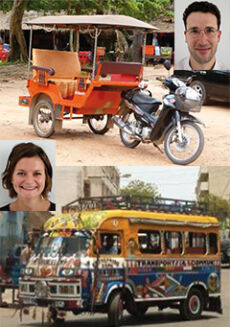Publications Routes/Roads Urban Mobility
This page lists Routes/Roads articles of PIARC in the field of urban mobility. These publications are classified chronologically.
-
Supporting road management and operations through ITS - The experience of ANAS S.p.A.

This article describes the ANAS experience regarding the implementation of an ITS system to manage road network and demonstrates how technologies can give a tangible support for delivering improved services related to road operations.
-
Mobility issues in large urban areas: Paris metropolitan area

The purpose of the paper is to try to give an answer to some questions concerning the demand of mobility (daily mobility).
-
Infrastructure of transportation systems in metropolitan area of Buenos Aires

This article describes the means of transport available in Buenos Aires.
-
The medium-term strategy to realize multimodal mobility in Tokyo Metropolitan Region

This article describes how the pattern of main mass transit networks, and thus, multi-modal urban mobility has been realized at a substantial degree. This is due to a medium-term strategy of coordinated planning and finance between rail transit network development and suburban development.
-
Improving urban mobility in emerging countries

This article deals with the issue of urban and suburban mobility and shows it has become highly sensitive and the focus of many public and private actors, engaged in seeking innovative solutions to address this issue.